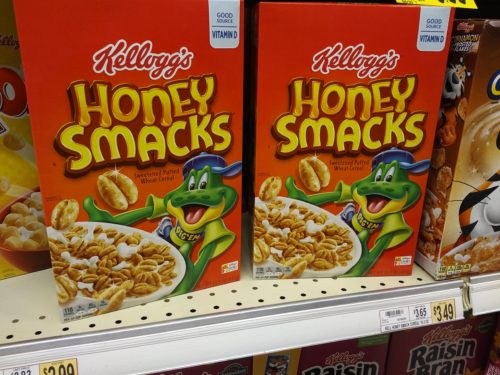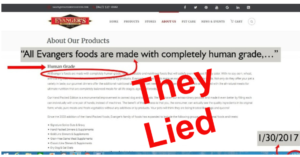The FDA is warning dog owners about an observed association of enlarged hearts in animals fed dog foods containing peas, lentils, other legumes, or potatoes as main ingredients (these appear first or second on ingredient lists). These pet foods are often labeled “grain-free.”
Large breeds are more seriously affected but cases have occurred in medium and small breeds too.
The reason for the association is not known but one possibility is that these diets are low in the amino acid taurine, which is usually present in meat (see note at end).
As Mal Nesheim and I discussed in our book, Feed Your Pet Right, dogs—like humans—do best on a highly varied diet containing many different foods.
The FDA website contains lots of information about pet foods and pet food recalls.
The FDA encourages pet owners and veterinary professionals to report cases of DCM in dogs suspected of having a link to diet by using the electronic Safety Reporting Portal or calling their state’s FDA Consumer Complaint Coordinators. Please see the link below about “How to Report a Pet Food Complaint” for additional instructions.
As for what’s going on here, the New York Times quotes veterinary nutritionist Lisa Freeman:
Contrary to advertising and popular belief, there is no research to demonstrate that grain-fee diets offer any health benefits over diets that contain grains.
The Times also a quotes a veterinarian who feeds his own dog a mainstream commercial pet food:
A lot of people would have qualms because it uses less expensive or nonorganic ingredients…But we’ve seen dogs thrive on these diets.
That is indeed what the research shows.
In our book, Mal and I repeatedly emphasize that pet foods are like infant formulas in that they all have to meet exactly the same nutritional standards.
Whether the sources of ingredients providing those nutrients make any difference to a pet’s health is a mystery. Why? Because no pet food company wants to do the obvious, but expensive, experiment: Compare the effects of the cheapest complete-and-balanced pet food to the one made with the highest quality (and most costly) ingredients.
At some point, all complete-and-balanced pet foods were tested to make sure they properly supported growth and reproduction.
Are there critical differences?
In marketing, definitely. To health? We just don’t know.
Added note, September 4, 2018
The best discussion of the taurine-in-dogs issue I have seen is this one in Whole Dog Journal by Linda Case.




